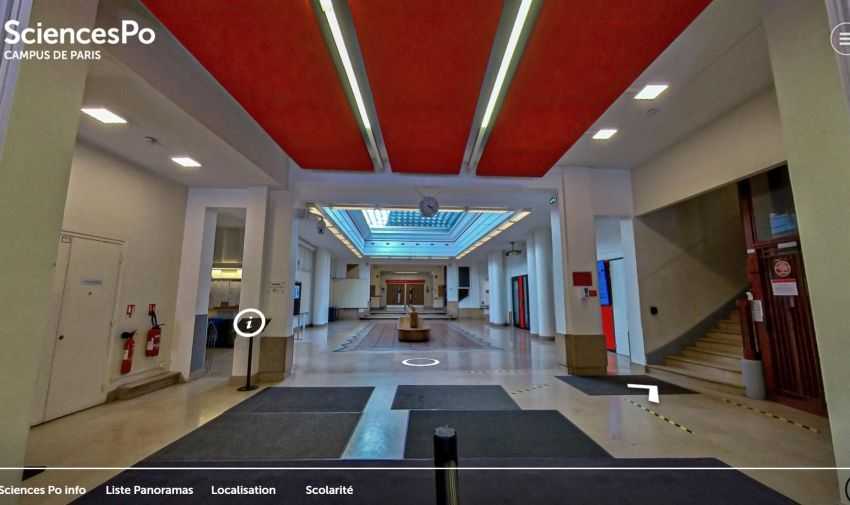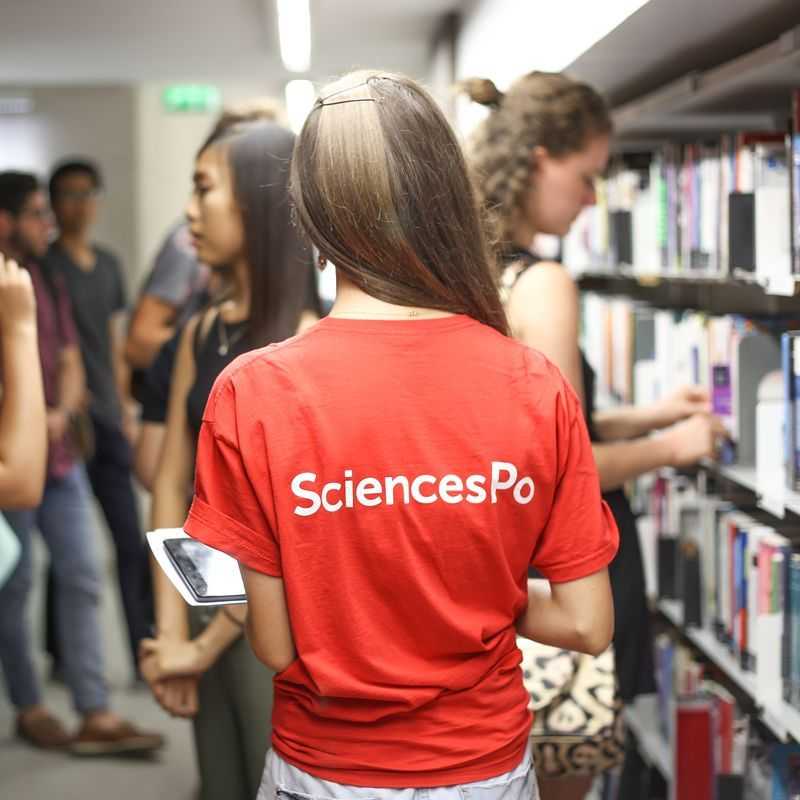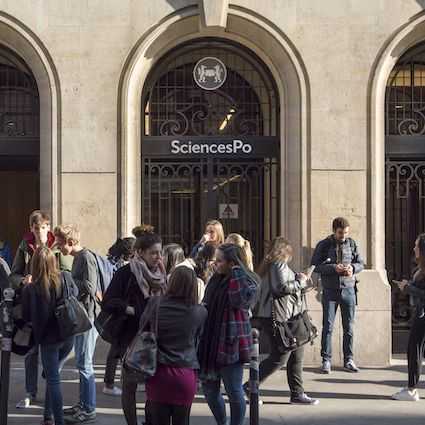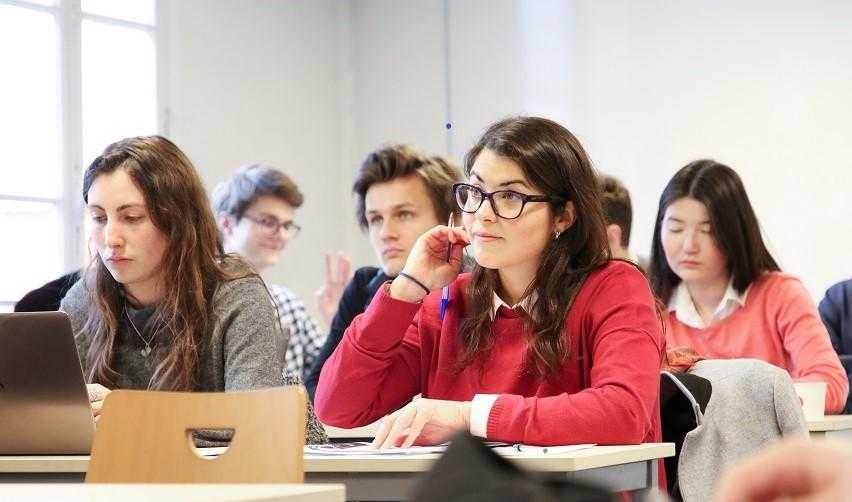
Home>Academics>Bachelor of Arts
Bachelor of Arts
An undergraduate curriculum focusing on the humanities and social sciences
Three-Year Bachelor's Programme
Programme in French and English
180 ECTS minimum
Virtual Undergraduate Open House days - 7th February 2026
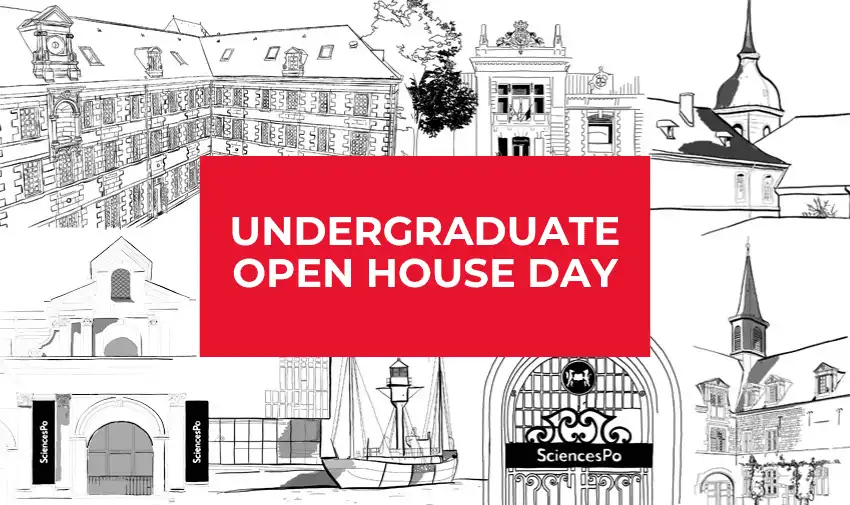
Discover Sciences Po, our Bachelor's degree in the Humanities & Social Sciences and Admissions procedures! Meet the Campus Directors, the academic advisors and students form our 7 campuses.
The Bachelor of Arts (BA) in the social sciences and humanities is a three-year programme, taught in French and English, totalling a minimum of 180 ECTS credits.
This programme is based on three pillars:
- Academic excellence through rigorous, multidisciplinary training;
- International outlook: promoting mobility, diversity and global perspectives;
- Civic engagement to train active and responsible citizens.
Multidisciplinarity at the heart of the programme
The Undergraduate College programme at Sciences Po aims to provide all the tools needed to understand the contemporary world. Based on the study of the humanities and social sciences, the programme is built on five disciplines: history, law, economics, political science, and sociology, to which is added the disciplinary field of political humanities.
The programme is complemented by foreign language learning, quantitative methods, and artistic workshops.
- First-year courses form the foundation of the programme: students are introduced to all the disciplines of the curriculum.
- The second year is dedicated to in-depth study. Students choose two majors, each from the two blocks below:
- Block 1: Economics, Political Science – Comparative Politics, Political Science – Political Theory
- Block 2: Law, History, Sociology
- The third year is that of compulsory international mobility.
Students develop rigour and critical thinking through varied and complementary approaches. They acquire strong skills in writing, speaking, and analysing multiple sources: texts, figures, images, or videos.
In addition, Artistic practice and the study of literature and art (pdf in French, 276 Ko) stimulates students’ creativity and their ability to analyse contemporary political issues through new, unexpected lenses.
Geographical minors to understand global challenges
The Sciences Po Bachelor’s degree is a unique diploma delivered across 7 campuses. Core courses are the same on each campus. These are supplemented by specialised courses that explore political, social, economic, and cultural issues from a regional perspective (Americas, Africa, Asia, Europe).
Studying on a regional campus allows students to validate a geographical minor:
- In Dijon, the European Union, Central and Eastern Europe minor (in French, with the option of taking the first semester in English),
- In Le Havre, the Asia-Pacific minor (in English),
- In Menton, the Mediterranean and Middle East minor (in French or in English),
- In Nancy, the European Union, Franco-German partnership minor (in French, with the option of taking the first semester in English),
- In Poitiers, the Latin America and Caribbean minor (in French, with the option of taking the first semester in English),
- In Reims, the Africa minor (in French and English) and the North America minor (in English).
The Paris campus offers a general programme, without geographical specialisation, taught in French.
Learning about Citizenship and Giving Back
The Civic Learning Programme is a pathway of reflection and civic engagement, in the fields of the public interest, the common good, and the promotion of equality and solidarity. It offers a training programme grounded in action research, with permanent links between the courses taken and field-based engagement experiences. At the end of their second year, students write a final Capstone Project, a multidisciplinary and reflective scholarly piece of work.
In concrete terms, this includes:
- An engagement day in the first year,
- A 140-hour civic internship during the summer of the first year.
- In the second year:
- A 50-hour engagement project throughout the year, and optionally also in the third year,
- Methodological workshops to support the writing of the Capstone Project,
- A Capstone Project submitted at the end of the second year.
Certifications to showcase your skills
During their years of study at the Undergraduate College, students have the opportunity to follow four thematic pathways in the form of certifications:
- The “Gender and Equality” Certification, organised by the PRESAGE (Gender Studies) programme, on issues of gender and equality between women and men, offered on all campuses;
- The CIVICA European Certification, through CIVICA, our alliance of 10 European universities. It is offered on all campuses;
- The “Seas and Ocean” Certification, which validates a study and research pathway on environmental and geopolitical issues of maritime and coastal areas, offered in Le Havre, Menton and Poitiers;
- The “Citites and Regions Certification”, in partnership with the Urban School, currently offered only in Dijon.
